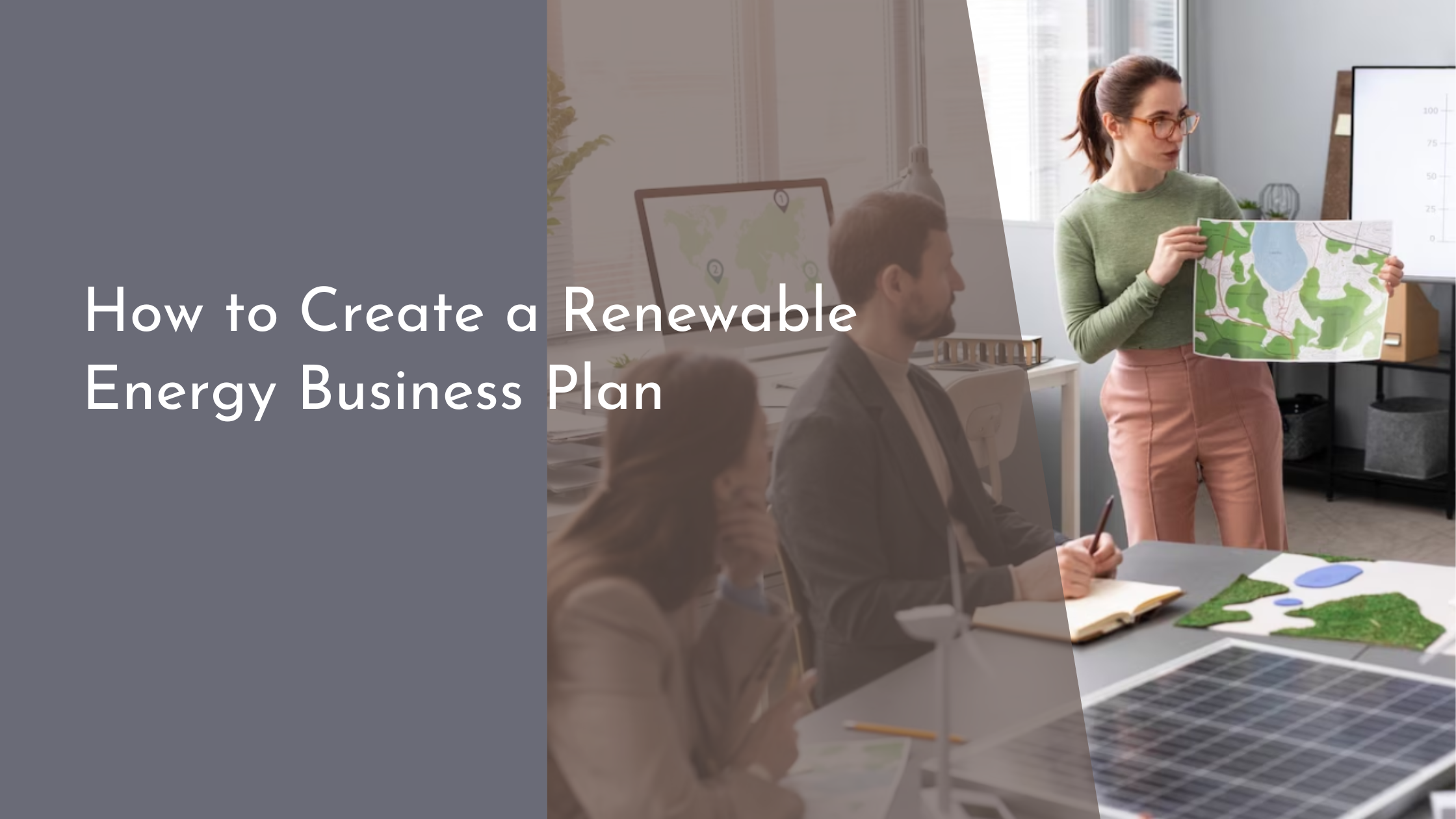How to Create a Renewable Energy Business Plan
In today’s rapidly evolving energy landscape, establishing a renewable energy business can be both a profitable and impactful venture. With growing concerns over climate change and a global shift towards sustainable energy solutions, the demand for renewable energy sources is higher than ever. Creating a comprehensive business plan is the first step towards entering this promising market. In this article, we’ll guide you through understanding the renewable energy market, setting clear business goals, developing a financially sustainable plan, and effectively implementing and monitoring your strategy.
Understanding the Renewable Energy Market
The renewable energy market is diverse, encompassing solar, wind, hydroelectric, biomass, and geothermal power. Each of these sectors has its own set of opportunities and challenges, influenced by factors such as geographical location, technological advancements, and governmental policies. Understanding these dynamics is crucial for identifying your niche within the market. Research current trends, key players, and emerging technologies to gain insights into where the industry is headed and how your business can fit into this landscape.
Additionally, studying the regulatory environment is essential. Policies and incentives vary greatly from one region to another, impacting the feasibility and profitability of renewable energy projects. Stay informed about changes in legislation, tax credits, and subsidies, as these can significantly affect your business model. Collaborate with industry experts and participate in forums and conferences to keep abreast of the latest developments. By thoroughly understanding the market, you’ll be better equipped to identify opportunities and mitigate risks.
Defining Your Business Goals and Objectives
Once you have a solid grasp of the renewable energy market, the next step is to define your business goals and objectives. Start by considering what you hope to achieve in both the short- and long-term. Are you focused on becoming a leading provider of solar installations in your region, or are you aiming to develop innovative wind turbine technologies? Clear goals will help guide your decision-making and strategic planning processes.
Your objectives should be specific, measurable, attainable, relevant, and time-bound (SMART). For instance, you might set a target of achieving a 20% market share in solar installations within the next five years. Having SMART objectives will not only motivate your team but also provide a framework for evaluating your progress. Be sure to align your goals with the broader mission of your company, ensuring that your business decisions reflect your commitment to sustainability and innovation.
Crafting a Financial Plan for Sustainability
A robust financial plan is the backbone of any successful business plan, particularly in the renewable energy sector where initial capital investments can be substantial. Begin by estimating the startup costs, including equipment, permits, and marketing expenses. Additionally, consider ongoing operational costs such as maintenance, personnel, and utility fees. Outline how you plan to secure funding, whether through investors, loans, or grants, and develop a realistic timeline for achieving profitability.
Projecting revenue and cash flow is equally important. Analyze your pricing strategy, taking into account competitive pricing and the value your services offer. Forecast your financial performance under different scenarios to prepare for potential market fluctuations. By creating a detailed financial plan, you can ensure your business remains sustainable and financially healthy, even in challenging times.
Implementing and Monitoring Your Business Plan
With your business plan in place, the next step is implementation. Assemble a dedicated team that shares your vision and values, and equip them with the resources they need to succeed. Establish a timeline for achieving your objectives and assign clear responsibilities to each team member. Effective communication and leadership are crucial to maintaining momentum and ensuring everyone is aligned with the company’s goals.
Monitoring and evaluating your progress is an ongoing process. Use key performance indicators (KPIs) to track your success and identify areas for improvement. Regularly review your financial statements, customer feedback, and market conditions to adapt your strategies as needed. Flexibility is vital in a rapidly changing industry like renewable energy. By staying vigilant and responsive, you can ensure your business not only survives but thrives in the long run.
Creating a renewable energy business plan is an exciting and rewarding endeavor. By understanding the market, setting clear goals, crafting a sustainable financial strategy, and implementing a robust monitoring system, you’ll be well-equipped to navigate the challenges and seize the opportunities within the renewable energy industry. Your efforts will contribute to a cleaner, greener future, while also paving the way for financial success. Remember, the journey to sustainable entrepreneurship is not just about profit, but also about making a positive impact on the world.

